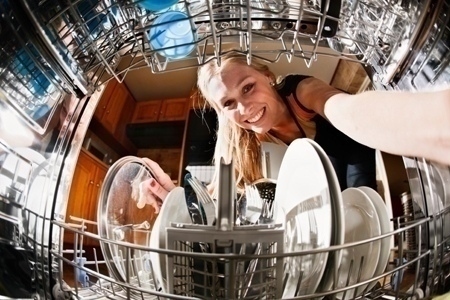 (TNS)—Most people depend on their kitchen appliances for daily use and occasionally for a cooking marathon before a holiday feast. They’re staples of the kitchen, and expected to work. But as soon as the refrigerator stops cooling or the oven won’t warm, panic sets in.
(TNS)—Most people depend on their kitchen appliances for daily use and occasionally for a cooking marathon before a holiday feast. They’re staples of the kitchen, and expected to work. But as soon as the refrigerator stops cooling or the oven won’t warm, panic sets in.
Appliance repair pros say regular, routine maintenance and care can prolong the life of kitchen appliances and prevent untimely repairs.
Check out these tips to keep your appliances in tiptop shape.
1. Refrigerator maintenance
“The most important maintenance you can do on your refrigerator is to clean the condenser coils regularly because the coils are covered with dirt, grime, debris, pet hair and all that kind of stuff and it overheats the refrigerator,” says Bill Krier, president and CEO of highly rated (on Angie’s List) Broad Ripple Appliance in Indianapolis. He says the debris puts added stress on the refrigerator’s components, including the compressor. “The parts have to work harder and don’t last as long,” he says.
To access the coils, remove the grill at the bottom or back of the fridge and use a broom or vacuum to clear debris. For sub-zero refrigerators, the coils are usually located on the top of the unit.
2. Dishwasher maintenance
“The biggest thing you can do to keep your dishwasher running well is to clean food off your dishes before you put them in,” Krier says. Food bits get stuck in crevices, gum up moving parts and cause bacteria to form.
Krier recommends using a dishwasher cleaning product every three to six months to remove calcium buildup. Calcium deposits can clog the dishwasher’s sprayer arm and impact cleaning efficiency. He says cleaning products containing citric acid effectively remove calcium buildup.
For another trick to remove calcium buildup, place a cup of white vinegar on the top shelf of an empty dishwasher and run a load with hot water.
3. Microwave maintenance
Krier recommends cleaning your microwave regularly to remove food particles. “Even though it’s stuck on there, the microwave is going to keep heating the food pieces,” he says. “After time it’s going to get hard as a rock.” Krier says microwaves heat food particles at high temperatures, which can then burn the top and sides of the microwave. He recommends cleaning the inside of the microwave with glass cleaner.
To remove stubborn food bits, boil a cup of water or white vinegar in the microwave to loosen the food particles, which you can then easily wipe off with a sponge.
4. Stove and oven maintenance
Have you ever placed aluminum foil on the bottom of your oven to catch food spills? Although it seems like an easy way to keep your oven clean, Krier says aluminum foil blocks airflow and can interfere with the heating element, causing it to fail or require recalibration.
To keep a smooth-top stove looking new, Krier recommends scraping off burned food bits with a razor blade and cleaning the surface with glass cleaner.
©2015 Angie’s List
Distributed by Tribune Content Agency, LLC










